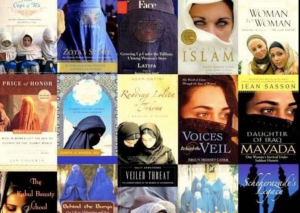I listened to a very stimulating discussion of the underlying nature of conspiracy theories, on both ends of the political spectrum, on the invaluable Against the Grain podcast today.
Against the Grain, Tuesday Jan 8, 2013: “What’s the Matter with Conspiracy Theories?“:
From the assassination of JFK to a wide range of theories related to the attacks of September 11, 2001, conspiracy theories seem natural to the left. But should they be? Anarchist historian Peter Staudenmaier discusses the problems with substituting conspiracy theories for radical social critique. He draws on Sigmund Freud, Theodor Adorno, and Franz Neumann, focusing not on the details of any particular conspiracy, but on the problems with the theoretical assumptions on which they operate.
It’s quite striking how commonplace many of the essential traits enumerated here are within “mainstream” Western anti-Muslim discourse today–e.g., the inability of conspiracists to acknowledge complexity is mirrored in the instinctive, cartoonish framing of all violence by Muslims as “jihad”, or perhaps even part of The Jihad–even in otherwise intellectually respectable conservative media outlets.
I don’t think this is simply because Muslims have to a great extent replaced Jews in the world-view of Western bigots today. The animus that accompanies that dubious distinction in the national psyche explains some of the dumbing down of discourse on Islam, but I think there is a more fundamental reason. I suspect that it ultimately arises more out of the imperative of avoiding nuanced, un-circumscribed analysis of modern political problems involving Muslims that would bring into relief the real world consequences–for Westerners no less than Muslims–of glaring double standards, militarism and unilateralism that many in Western policy circles (especially in Washington, I sadly note as an American) cherish above all else. There’s no shortage of bigots with an ax to grind these days, but on the systemic level this is about business, maintaining the untrammeled prerogatives of empire.
When you live in fear of serious popular discussions of cause & effect concerning a host of consistently disastrously counterproductive policies around the Muslims world, to subliminally embrace conspiracism is a powerful way to keep those potentially unruly discussions in ideologically safe territory. And, just as the most influential bigots now invariably officially repudiate racism, the most influential Muslim-baiting conspiracists do so while posing as careful, dispassionate observers of Muslim affairs. Look closely at their unspoken assumptions,though, and you quickly discover it’s the same old manipulative reductionism and narrow agendas of crackpots and bigots.
There is an irony here, as one might argue that I myself am indulging in a form of conspiracism, but there are problems with that. First, as the speaker notes, there is a tendency to conflate systemic analyses of the practices and values of institutions that lead to controversial conclusions about those institutions with conspiracy theories, which are ultimately the exact opposite. A conspiracy theory focuses on the impact of the actions of an imagined group hidden conspirators, whereas this kind of a systemic analysis focuses on the objective, visible and widespread facts of power relations, practices and policies within an institution or system. The other problem with this charge is that, sadly, the world is full of all-too-real and sinister conspiracies, many brazenly operating in the open. Just look at how intellectual property rights treaties are being worked out these days by democratically-elected governments without any input from the public or NGOs, or how, ahem, American campaign finance operates post-Citizens United. In fact, as our democratic values and practices continue to slide it seems like conspiracies are only proliferating. The problem with conspiracy theorists ultimately isn’t that fact that they believe in conspiracies, but rather the irrational way they arrive at that conclusion. As they say, you’re not crazy if there really are people out to get you.
Someone needs to write a book entitled Everything I ever needed to know about the world was worked out half a century ago by the Frankfurt School.











